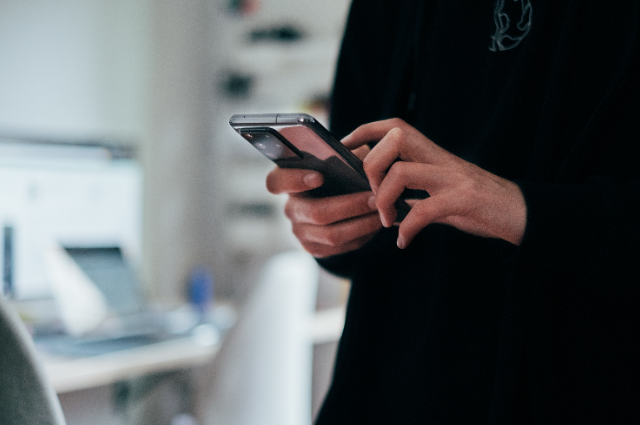
Photo by Jonas Leupe on Unsplash
Mobile phones are one of the most ubiquitous and influential technologies in the modern world. They enable us to communicate, access information, entertain ourselves, and perform various tasks anytime and anywhere. They have become an essential part of our personal and professional lives, connecting us to people, places, and opportunities across the globe. However, this constant connectivity also comes with a cost. Mobile phones can also increase the distance between us and our real-life social interactions, resulting in loneliness and high mental stress or depression. In this essay, I will explore how mobile phones can isolate us from ourselves and others, and how they can affect our mental health in negative ways.
Are You Still the 'Real You'? - How Mobile Phones Isolate Us from Ourselves:
One of the ways that mobile phones can isolate us from ourselves is by distracting us from our present moment and our inner feelings. Mobile phones can provide us with endless sources of stimulation, such as social media, games, videos, news, and messages. These can keep us engaged and entertained, but they can also prevent us from paying attention to our surroundings, our activities, and our emotions. According to a study by researchers at the University of Virginia, people who use their phones frequently tend to be less mindful and less aware of their own experiences than those who use them less often.
Another way that mobile phones can isolate us from ourselves is by reducing our self-esteem and self-worth. Mobile phones can expose us to unrealistic standards of beauty, success, happiness, and popularity that are portrayed by celebrities, influencers, and peers on social media. These can make us feel inadequate, insecure, and dissatisfied with ourselves and our lives. According to a study by researchers at the University of Derby, people who use their phones excessively tend to have lower self-esteem and higher levels of narcissism than those who use them moderately.
'Friends' - Really? : How Mobile Phones Isolate Us from Others:
One of the ways that mobile phones can isolate us from others is by interfering with our face-to-face communication and relationships. Mobile phones can distract us from engaging in meaningful conversations and interactions with our family, friends, colleagues, and strangers. They can also create barriers and conflicts between us and our loved ones, such as when we ignore them, interrupt them, or argue with them over phone-related issues. According to a study by researchers at the University of Essex, people who use their phones during social situations tend to have lower-quality of relationships and less trust than those who do not.
Another way that mobile phones can isolate us from others is by creating a false sense of connection and intimacy. Mobile phones can allow us to communicate with anyone at any time, but they can also prevent us from developing deep and authentic bonds with them. They can make us feel connected to many people superficially, but disconnected from anyone genuinely. They can also make us feel lonely and isolated when we do not receive enough attention or validation from our online contacts. According to a study by researchers at the University of Pittsburgh, people who use their phones frequently tend to experience more loneliness and depression than those who use them less often.
'Alone!' / 'Depressed!' - How Mobile Phones Affect Our Mental Health:
The isolation that mobile phones can cause from ourselves and others can have serious consequences for our mental health. Mobile phones can increase our stress levels, anxiety, and depression, as well as impair our sleep quality, memory, attention, and cognitive functions. Some of the factors that contribute to these effects are:
- The pressure to be constantly available, responsive, and updated on mobile phone activities
- The exposure to negative, violent, or upsetting content on mobile phone platforms
- The comparison, competition, and envy that arise from mobile phone interactions
- The addiction, dependence, or withdrawal that develops from mobile phone usage
- The fear of missing out, losing out, or being left out due to mobile phone activities.
According to a study by researchers at the University of Illinois, people who use their phones excessively tend to have higher levels of stress, anxiety, and depression than those who use them moderately.
Synopsis:
Mobile phones are a double-edged sword. They can connect us to the world, but they can also disconnect us from ourselves and others. They can enhance our lives, but they can also harm our mental health. Therefore, we need to be mindful and responsible about how we use them. We need to balance our online and offline activities, limit our exposure to harmful content, cultivate positive and supportive relationships, and seek professional help if needed. By doing so, we can enjoy the benefits of mobile phone connectivity without suffering from its drawbacks.
